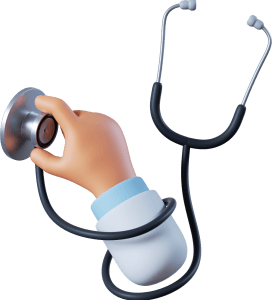Op. Dr. Osman Çelik
What is Circumcision and Why is it Done?
What are the benefits of circumcision?
Circumcision has several health benefits. First, circumcision helps maintain hygiene in the genital area. Men who have their foreskin removed are at a reduced risk of urinary tract infections and sexually transmitted infections. Circumcision also significantly reduces the risk of penile cancer. Circumcised men are also less likely to develop cervical cancer in their sexual partners. These health benefits have led to circumcision being widely practiced for medical reasons.
How is Circumcision Performed?
Circumcision is a simple surgical procedure that is usually performed under local anesthesia. General anesthesia may be preferred for infants and young children. During the procedure, the foreskin is carefully cut and removed, and the exposed area is closed in a sterile manner. The recovery process after circumcision is usually quick and uneventful. After the procedure, it is important to keep the genital area clean and follow the care instructions recommended by the doctor.
Things to Consider After Circumcision
In the post-circumcision period, the hygiene of the child's genital area should be taken into consideration. After the procedure, mild pain, swelling and redness may be experienced, but these conditions usually resolve in a short time. The painkillers and antibiotics prescribed by the doctor support the healing process. In addition, tight and tight clothing should be avoided in the post-circumcision period and the area should be allowed to breathe. All questions regarding the child's post-circumcision care will be answered by the doctor.
Who is Circumcision Suitable For?
Circumcision is usually performed in infancy or childhood, but can be performed at any age. Adult males may also be circumcised for medical reasons. Circumcision is recommended for males with health problems such as urinary tract infections, recurrent balanitis, or phimosis. Circumcision is also a mandatory ritual for some cultural and religious communities.
Frequently Asked Questions About Circumcision
1. Is circumcision painful?
Circumcision is usually performed under local anesthesia, so there is no pain. General anesthesia may be used for infants and young children.
2. How long does the recovery process after circumcision take?
The recovery period after circumcision is usually between 7-10 days. During this time, mild pain and swelling may occur.
3. What should be taken into consideration after circumcision?
After circumcision, it is important to keep the genital area clean and avoid tight clothing. The care instructions given by the doctor should be followed.
4. What are the health benefits of circumcision?
Circumcision reduces the risk of urinary tract infections, sexually transmitted infections, and penile cancer. It also reduces the risk of cervical cancer in sexual partners.
5. At what age should circumcision be performed?
Circumcision is usually performed in infancy or childhood, but can be performed at any age.
6. How long does the circumcision procedure take?
Circumcision usually takes 20-30 minutes and is performed under local anesthesia.
7. What medications should be used after circumcision?
After circumcision, your doctor may prescribe painkillers and antibiotics. These medications support the healing process.
8. What are the complications after circumcision?
Rare complications after circumcision may include infection, bleeding, and excessive swelling. In these cases, you should consult your doctor.
9. Who should perform circumcision?
Circumcision should be performed by an experienced urologist or surgeon in a sterile environment.
10. When should one return to school or work after circumcision?
After circumcision, you can usually return to your daily activities within 2-3 days. However, you should follow the doctor's recommendations for a full recovery.


